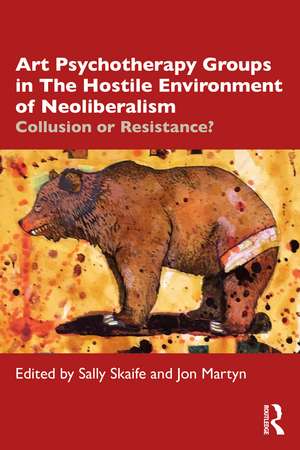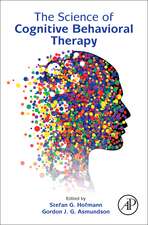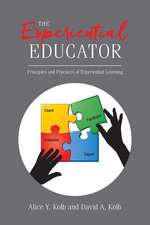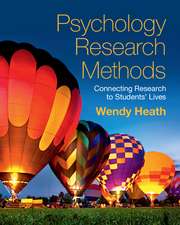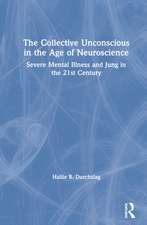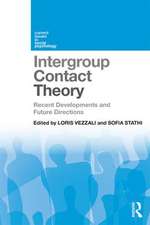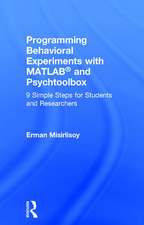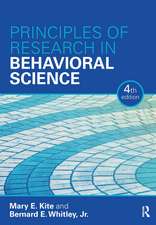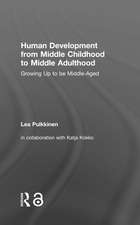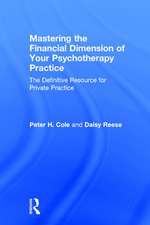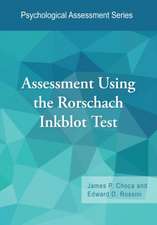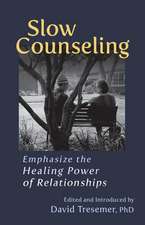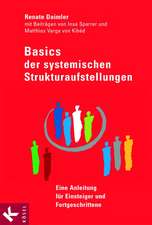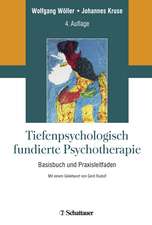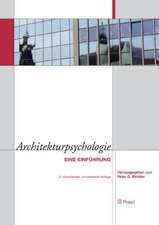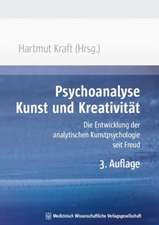Art Psychotherapy Groups in The Hostile Environment of Neoliberalism: Collusion or Resistance?
Editat de Sally Skaife, Jon Martynen Limba Engleză Paperback – 24 feb 2022
The book argues that art therapy needs to become a political practice if it is to resist collusion with a system that marginalises collectivity and holds individuals responsible for both their suffering and their recovery. It provides accounts of the contradictions that are thrown up by neoliberalism in art therapists’ workplaces as well as accounts of art therapy groups with those affected by the fire at Grenfell Tower, in an acute ward, a women’s prison, a community art studio and in a refugee camp.
Written by art psychotherapists for arts therapists and other mental health workers, the book will bring political awareness and consideration of resistance into all art therapy relationships, whatever the context and client group.
| Toate formatele și edițiile | Preț | Express |
|---|---|---|
| Paperback (1) | 204.95 lei 3-5 săpt. | +16.55 lei 6-10 zile |
| Taylor & Francis – 24 feb 2022 | 204.95 lei 3-5 săpt. | +16.55 lei 6-10 zile |
| Hardback (1) | 1088.76 lei 6-8 săpt. | |
| Taylor & Francis – 24 feb 2022 | 1088.76 lei 6-8 săpt. |
Preț: 204.95 lei
Preț vechi: 215.73 lei
-5% Nou
Puncte Express: 307
Preț estimativ în valută:
39.25€ • 40.05$ • 33.02£
39.25€ • 40.05$ • 33.02£
Carte disponibilă
Livrare economică 05-19 februarie
Livrare express 21-25 ianuarie pentru 26.54 lei
Preluare comenzi: 021 569.72.76
Specificații
ISBN-13: 9780367619848
ISBN-10: 0367619849
Pagini: 220
Ilustrații: 20 Halftones, black and white; 10 Illustrations, color; 10 Illustrations, black and white
Dimensiuni: 156 x 234 x 22 mm
Greutate: 0.45 kg
Ediția:1
Editura: Taylor & Francis
Colecția Routledge
Locul publicării:Oxford, United Kingdom
ISBN-10: 0367619849
Pagini: 220
Ilustrații: 20 Halftones, black and white; 10 Illustrations, color; 10 Illustrations, black and white
Dimensiuni: 156 x 234 x 22 mm
Greutate: 0.45 kg
Ediția:1
Editura: Taylor & Francis
Colecția Routledge
Locul publicării:Oxford, United Kingdom
Public țintă
Postgraduate, Professional, and Professional Practice & DevelopmentNotă biografică
Sally Skaife, PhD, is an art therapist and group analyst working in mental health. She was a Senior Lecturer at Goldsmiths, University of London; a chair of the British Association of Art Therapists; a member of the editorial board of Inscape and, currently, ATOL; and has numerous publications.
Jon Martyn is an art psychotherapist and clinical supervisor. He was a lecturer at Goldsmiths College and co-founded the New Art Studio, a therapeutic art studio for refugees and asylum seekers with Tania Kaczynski. He now lives in Sheffield, South Yorkshire.
Jon Martyn is an art psychotherapist and clinical supervisor. He was a lecturer at Goldsmiths College and co-founded the New Art Studio, a therapeutic art studio for refugees and asylum seekers with Tania Kaczynski. He now lives in Sheffield, South Yorkshire.
Recenzii
‘This book is at the vanguard of the political turn taking place in sections of the psychotherapy profession. Eloquent and accessible, it is a powerful, critical account of how art psychotherapy has been used on "the front line" in a range of settings, not only to ameliorate the psychological harm produced by neoliberal policies, but also to empower the citizen. Skaife and Martyn's work is a call to arms, challenging many of the taken-for-granted norms of the psychotherapy profession.’
Farhad Dalal, Psychotherapist and group analyst; Author of CBT: The Cognitive Behavioural Tsunami: Managerialism, Politics and the Corruptions of Science
‘Sally Skaife and Jon Martyn’s book comes at a critical moment as art therapists grapple with the impact of the neoliberal "free market" policies that have contributed to the vast divide between the rich and the poor. This book questions the impact of capitalism and marketization on the epistemology of art psychotherapy. Practicing art psychotherapy necessitates that we question our complicity in colluding with privatization that values profit over wellness. As the world comes to grips with the inadequate distribution of health care during COVID-19, which has severely impacted communities of color, this book should be necessary reading for anyone working in mental health.’
Savneet Talwar, Professor; Chair, Department of Art Therapy, The School of the Art Institute of Chicago
‘Just the title alone is sufficient for me to add this book to my "must read" list for 2021. The book summary promises a critical examination of art therapy in the context of a corporate capitalism that commodifies therapy and individualises distress and dis-ease, overlooking how social and institutional norms that fundamentally unhealthy generate distress in the first place. Combining rigour with a fast and energetic polemical prose style, this book promises to be one of the most important (and I hope influential) art therapy texts of the decade.’
Susan Hogan, Professor of Arts & Health University of Derby, College of Arts, Humanities & Education; Professorial Fellow, Institute of Mental Health, Nottingham
Farhad Dalal, Psychotherapist and group analyst; Author of CBT: The Cognitive Behavioural Tsunami: Managerialism, Politics and the Corruptions of Science
‘Sally Skaife and Jon Martyn’s book comes at a critical moment as art therapists grapple with the impact of the neoliberal "free market" policies that have contributed to the vast divide between the rich and the poor. This book questions the impact of capitalism and marketization on the epistemology of art psychotherapy. Practicing art psychotherapy necessitates that we question our complicity in colluding with privatization that values profit over wellness. As the world comes to grips with the inadequate distribution of health care during COVID-19, which has severely impacted communities of color, this book should be necessary reading for anyone working in mental health.’
Savneet Talwar, Professor; Chair, Department of Art Therapy, The School of the Art Institute of Chicago
‘Just the title alone is sufficient for me to add this book to my "must read" list for 2021. The book summary promises a critical examination of art therapy in the context of a corporate capitalism that commodifies therapy and individualises distress and dis-ease, overlooking how social and institutional norms that fundamentally unhealthy generate distress in the first place. Combining rigour with a fast and energetic polemical prose style, this book promises to be one of the most important (and I hope influential) art therapy texts of the decade.’
Susan Hogan, Professor of Arts & Health University of Derby, College of Arts, Humanities & Education; Professorial Fellow, Institute of Mental Health, Nottingham
Cuprins
Part 1. Resisting Capture; 1. The Hostile Environment, Sally Skaife and Jon Martyn; 2. Caught in Contradiction, Sally Skaife and Jon Martyn; 3. Art Therapy as Resistance, Sally Skaife and Jon Martyn; Part 2. Grenfell; 4. Latimer Community Art Therapy: Developing from the Grassroots after Grenfell, Susan Rudnik; 5. ‘This is Our Group’: Art Therapy with Adolescents in the Shadow of Grenfell, Beulah Lambert; 6. Don’t go out that door: The pressure on a school to perform/conform whilst its community faces the aftermath of a disaster, Holly Caldecourt; Part 3. Against All Odds; 7. A place of safety or a hostile environment?: How enactment in an art psychotherapy group revealed impacts of immigration controls on the mental health of asylum seekers and migrants detained in a psychiatric unit, Annamaria Cavaliero; 8. Prison Cells: Transgenerational trauma and art psychotherapy groups with women in prison, Jessica Collier; 9. Protested Space: Artworks made in a therapeutic art studio under threat from cuts, Helen Omand; 10. Witnessing the Edge: Reflections on Co-Facilitating a Men’s Art Therapy Group in a Refugee Camp in Greece, Emily Hollingsbee and Katie Miller; Epilogue: Politics in Action, Sally Skaife and Jon Martyn
Descriere
This book explores how ‘the hostile environment’ of neoliberalism affects art therapy in Britain. It shows how ambiguity in art and in psychoanalytically understood relationships can enable art psychotherapy groups to engage with class dynamics and aspire to democracy.
